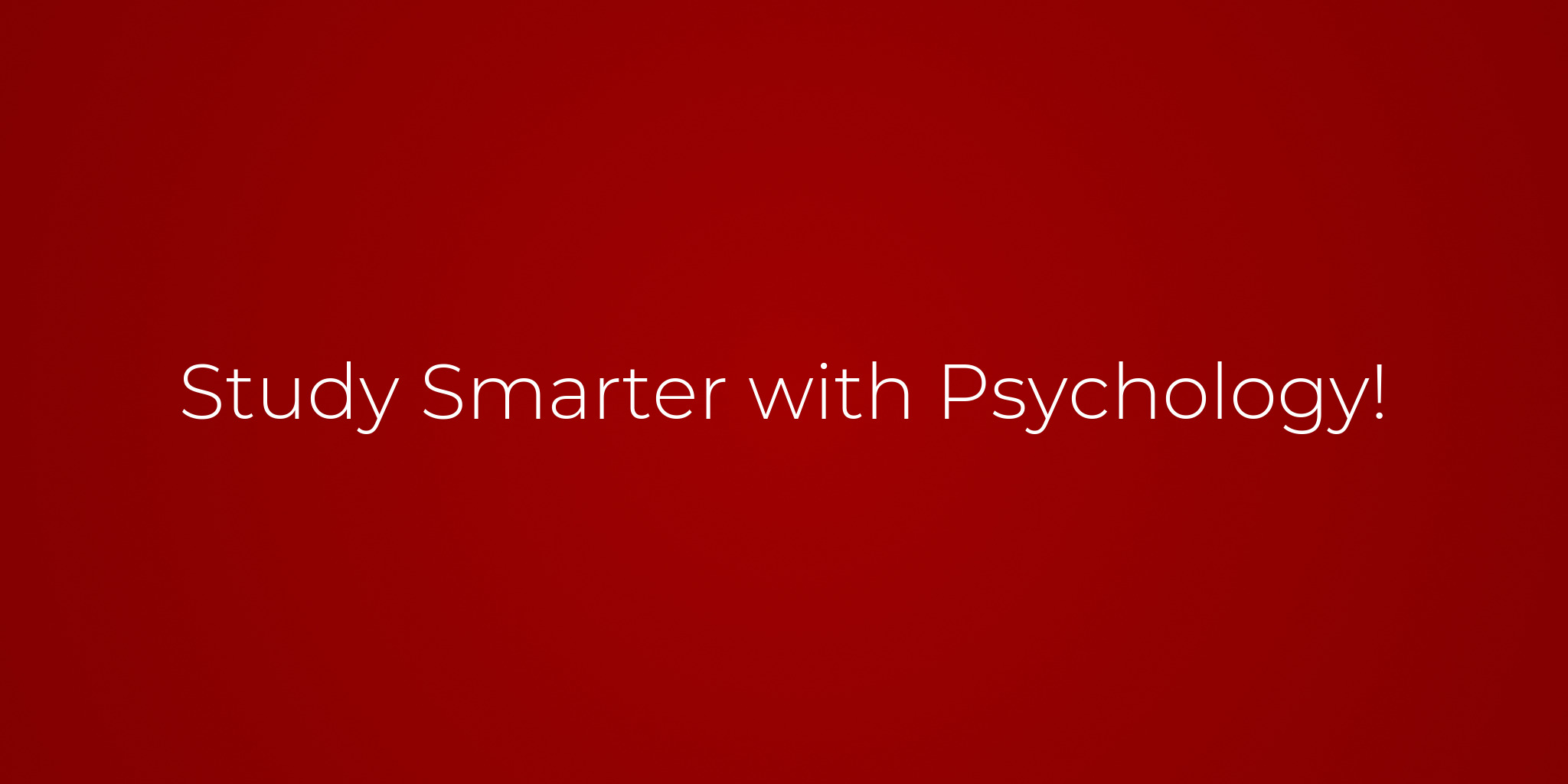Study Smarter with Psychology!

Would you have ever thought that something in class could be practically useful? faux surprise
Okay, but really, I’m taking a basic psychology class this semester, and some of the things we’ve learned are proving to be super helpful and practical for everyday life! So let’s get into some super basic learning theory and psychology-based studying strategies!
Memory has three simple components and three applications. The components of memory according the Atkinson-Shiffrin model include sensory memory, which is converted to short-term/working memory, before being converted and stored in long-term memory. When we need to retrieve any information, we can do so in a few different ways: recognition, recall, and relearning.
Recognition is often tested using multiple-choice exams. It simply tests our ability to remember associations between things. In recognition tests, we are often provided with many cues that trigger memories from storage.
Recall is why open-ended or fill-in-the-blank questions are more difficult than multiple choice. When using recall, we need to remember and reproduce a lot of information with fewer cues given.
Relearning simply explains the fact that once we’ve learned something, even if we can’t recognize or recall that information, we will be able to relearn it much faster than the first time we learned it. This is encouraging to me knowing that most of my college classes have not been in vain, even if I can’t recall anything I learned.
Smarter Studying Techniques
So with this in mind, let’s learn 5 techniques to study better and make recognition and recall easier! These are called effortful processing strategies and help to encode information from short-term to long-term memory.
1. Chunking
Organize information into familiar and manageable units. Try this when making outlines or study sheets. Instead of writing everything close together, separate different topics with space and color.
2. Mnemonics
Mnemonics are memory devices that use vivid imagery and devices. The example I was given was to imagine walking through your house, where every room is connected to a piece of information. Another idea is to make a story or phrase addressing what you need to remember. For example, Please Excuse My Dear Aunt Sally helped us all remember the order of operations.
3. Hierarchies
Make broad categories with subdivisions. Those are sweet words for this outline-loving gal.
4. Spacing effect
Less of a particular tool, but this concept states that distributed practice is better than massed practice. Essentially, we really should be studying over a period of multiple days and not pulling all-nighters. (Another psych application: sleep is really really important for memory!)
5. Testing effect
Test yourself! Testing really does improve learning and memory because you’re testing and reinforcing that recall before you really need it. Quizlet and Anki are of course great options for flashcard-based recall.
I hope this has been helpful and that you can start applying some psychology into your life! Overall, what my psychology professor has said and what I have found to be true is, any technique that allows you to think about information in a different way is great to boost your memory of it!
Keep in touch! Subscribe to the SSF Newsletter today for news and updates!
Have any questions you'd like to ask, requests for articles, or feedback? Email us at help@sebsscholarship.org.
Written by Holly Lakin on Mar 22, 2021